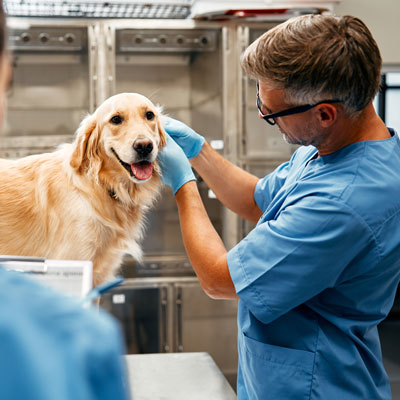
Integrative approaches to pet health, such as combining chiropractic care with acupuncture, physical therapy, and more, offer a comprehensive way to support your pet’s well-being. Chiropractic adjustments restore spinal alignment, improving mobility and nervous system function, while acupuncture relieves pain and stimulates healing through precise pressure points. Physical therapy strengthens muscles, enhances coordination, and aids recovery from injuries.
Together, these therapies address underlying issues holistically, promoting long-term health and vitality. By blending these approaches, you can create a personalized care plan that reduces discomfort, speeds healing, and enhances your pet’s quality of life naturally and effectively.
The Power of Integrative Veterinary Medicine
As a veterinarian specializing in integrative medicine, I’ve seen remarkable transformations when we combine different therapeutic approaches. Consider integrative veterinary medicine as a symphony – each therapy plays its unique part, but together, they create something spectacular for your pet’s health.
Chiropractic Care: The Foundation of Movement
Let’s start with chiropractic care – it’s not just for humans anymore! When I adjust a dog or cat’s spine, I’m helping restore proper nerve function and mobility. Like us, our furry friends can get misaligned, affecting their quality of life.
Common Conditions We Treat:
- Arthritis and joint pain
- Post-surgical rehabilitation
- Sports injuries in active dogs
- Age-related mobility issues
- Neurological conditions
See more: The Benefits of Chiropractic Care for Pets
Chiropractic + Acupuncture: A Dynamic Duo
Here’s where the magic happens. When we combine chiropractic adjustments with acupuncture, we address both structural and energetic healing aspects. I’ve seen countless cases where this combination has worked wonders:
Case Study: Max, the German Shepherd
Max came to us with severe hip dysplasia. After six weeks of combined chiropractic and acupuncture treatments, his mobility improved significantly, and his pain medication was reduced by half.
Physical Therapy: Movement is Medicine
Adding physical therapy to chiropractic care is like giving your pet a complete toolkit for recovery. We focus on:
- Strengthening exercises
- Balance training
- Range of motion work
- Controlled movement patterns
The combination helps pets recover faster and maintain the benefits of their chiropractic adjustments longer.
Nutritional Synergy
Good nutrition is the foundation of health, and it plays a crucial role in supporting chiropractic care. We’ve found that pets on optimized diets respond better to treatments. Think of it as giving your pet’s body the right building blocks for healing.
The Massage Connection
Ever notice how relaxed you feel after a massage? The same goes for our pets! Combining massage therapy with chiropractic care helps:
- Reduce muscle tension
- Improve circulation
- Speed up recovery
- Decrease anxiety during treatments
Herbal Medicine: Nature’s Support System
In our practice, we often incorporate herbal medicine to complement chiropractic care. Traditional Chinese Veterinary Medicine offers a wealth of herbs that can:
- Support joint health
- Reduce inflammation
- Promote healing
- Enhance overall well-being
The Gentle Touch of Homeopathy
Some of our more sensitive patients benefit from adding homeopathic remedies to their treatment plans. These subtle yet effective treatments can help:
- Reduce anxiety
- Support the healing process
- Address chronic conditions
- Complement chiropractic adjustments
Aromatherapy: Setting the Mood
Yes, even our furry friends can benefit from aromatherapy! When used correctly, essential oils can help create a calming environment for treatments. However, remember that pets are much more sensitive to scents than we are, so less is more.
Choosing Your Pet’s Healthcare Team
When looking for an integrative veterinarian, consider:
- Certification in multiple modalities
- Experience with your pet’s species
- Willingness to work with your primary vet
- Clear communication style
The Right Time for Integrative Care
We often recommend considering integrative therapies when your pet is:
- Dealing with chronic pain
- Recovering from surgery
- Showing signs of aging
- Experiencing digestive issues
- Exhibiting behavioral changes
Safety First: A Word of Caution
While these therapies are generally very safe, it’s crucial to:
- Work with qualified professionals
- Share your pet’s complete medical history
- Monitor their response to treatment
- Report any concerns promptly
Remember: Every pet is unique, and what works for one might not work for another. We always tailor our approach to each patient.
Tails Animal Chiropractic Care Reminder
At our practice, we believe in the power of integrated care to transform pets’ lives. We’ve seen paralyzed dogs walk again, arthritic cats jump like kittens, and anxious pets find peace through our combined therapeutic approaches. Contact with us now today!
Frequently Asked Questions
What are the potential benefits of combining chiropractic care with acupuncture for pets?
Combining chiropractic care with acupuncture can provide synergistic benefits for pets, such as reduced pain, improved mobility, enhanced immune function, and overall well-being.
Can herbal medicine be safely used for pets?
Herbal medicine can be a safe and effective option for pets when used under the guidance of a qualified veterinarian. It’s crucial to choose high-quality, pet-specific herbal products and to be aware of potential interactions with other medications.
How does homeopathy work for pets?
Homeopathy is based on the principle of “like cures like,” using highly diluted substances to stimulate the body’s natural healing abilities. It can be effective for various conditions, including anxiety, allergies, and digestive issues.
Can aromatherapy be used to help calm anxious pets?
Yes, aromatherapy can be a valuable tool for calming anxious pets. Essential oils like lavender and chamomile are calming and can be used in diffusers, collars, or massage oils.
Should I consult a veterinarian before starting integrative therapies for my pet?
It’s crucial to consult with a veterinarian before starting any integrative therapies for your pet. They can assess your pet’s needs, recommend appropriate treatments, and monitor their progress.
